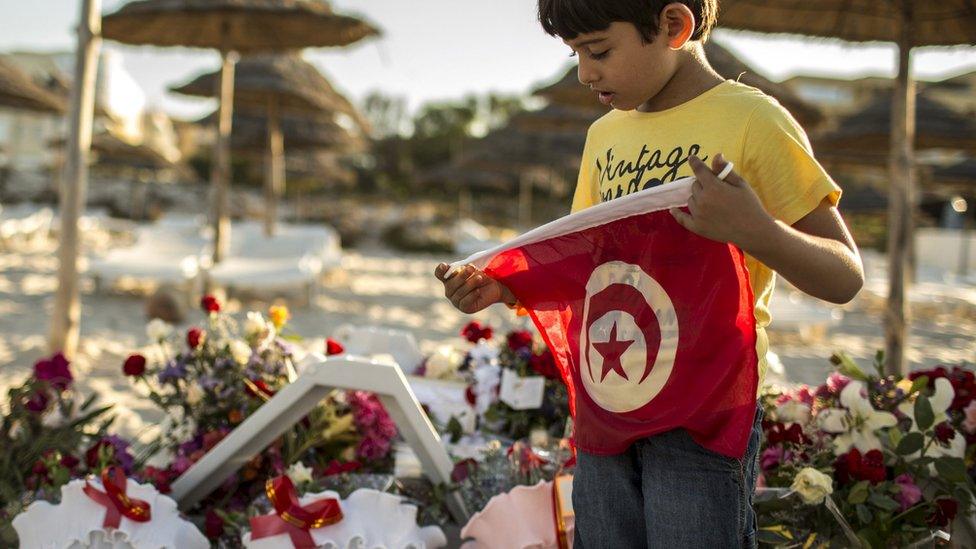Bookings down for terror-hit tourist countries
- Published
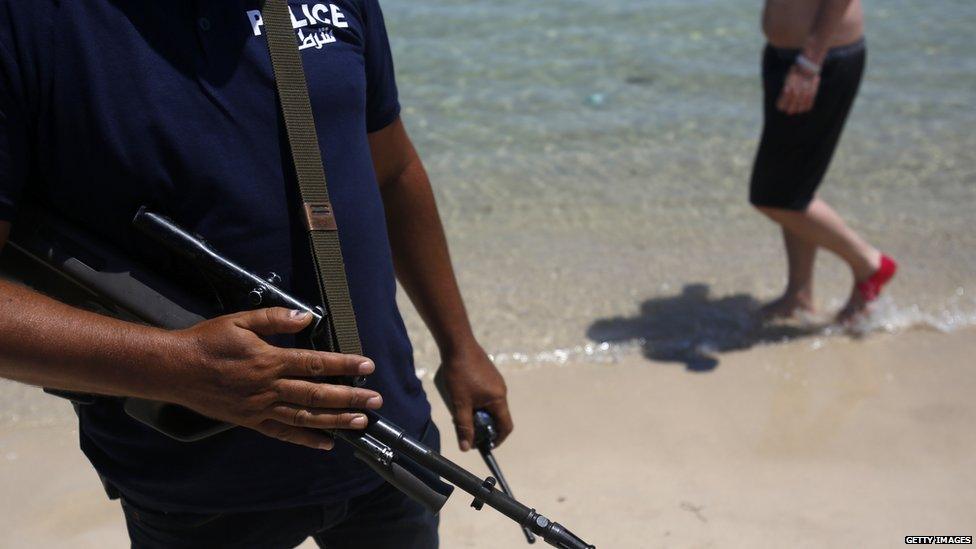
Armed police now patrol Tunisia's beaches after a gunman attacked tourists in June 2015
Destinations struggling to attract visitors after terrorist attacks will continue to see a fall in international arrivals, flight reservations suggest.
Turkey will be hardest hit, with bookings for September to December expected to be down by 52% on the same period last year.
Bookings to France are down by nearly 20% over the same period.
Research also suggests Spain, Portugal and Italy are the favoured substitute destinations in southern Europe.
Travel data company Forward Keys analysed flight reservation data for Radio 4's You and Yours programme.
Alternative destinations
During the first seven months of this year, the available seats to Spain from the UK increased by 19% compared with the same period a year earlier, Germany increased by 12%, and Portugal increased by 12%.
Low cost carriers are the airlines most responsible for pushing up capacity.
You and Yours listener Grace Finnigan, who has been on holiday to the Algarve in Portugal, said: "There is a marked increase in the number of people around this year. The traffic is horrendous and the restaurants are heaving with people."
Darren Northfield, who is in Marbella in Spain, said: "It is much busier than it was two years ago when we last visited."
'Other routes'
The series of terror attacks in France, starting with the Charlie Hebdo shooting, triggered a decreasing trend in international arrivals there, which was worsened by the Paris shootings in November 2015, according to Forward Keys.
France has suffered an accumulated year-on-year decrease of 5.4% between August 2015 and July 2016 and Paris suffered a worse decline, down 7.5% over the same period.
Bookings to Turkey were down by 15% between August 2015 and July 2016 compared with the same period last year due to a series of terror attacks and July's attempted coup d'etat.
Olivier Jager, from Forward Keys, said: "Travellers create a situation when they decide to visit alternative destinations.
"Operators and airlines decide to use their aircraft for other routes that allow them to fill their planes."
Tunisia starting to recover
International arrivals into Tunisia fell by 39.4% between August 2014 and July 2015, when a series of terror attacks - including on the beach in Sousse - targeted tourism destinations in the country.
However, figures from the Tunisian Tourist Board show that there has been an increase in the number of visitors from Algeria and Russia.
Between July 2014 and July 2016 the number of Russian tourists visiting Tunisia has more than doubled from 63,054 to 131,434. The number of Algerian tourists has tripled from 65,000 in 2014 to 194,370 over the same period.
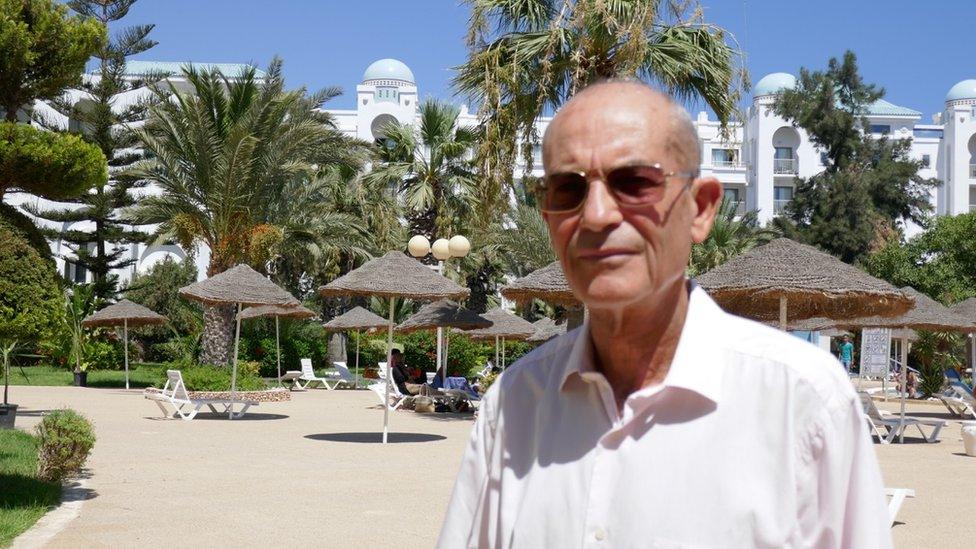
Hichem Driss from the National Hoteliers Federation says Tunisian hoteliers are seeing more customers from Russia
Tunisian hoteliers have slashed their prices to encourage these new tourists to holiday in the country.
Hichem Driss, vice-president of the National Hoteliers Federation, told You and Yours that hoteliers have cut prices from £45 a night to £25 per night.
"Since the attacks hoteliers have lost the biggest part of their turnover which used to come from European customers," he said.
"We now receive more visitors from North Africa, and Eastern Europe, particularly Russia. They do not spend as much as the Europeans. We offer them special offers because it's important to have a little business to try and save jobs."
Tunisia is starting to recover. Data collated by Forward Keys suggests international arrivals for the coming quarter are up by 13% compared with the equivalent period last year.
Mr Jager said: "We see a slight improvement in terms of bookings, which have increased by 13% for the period September to December.
"That's comparing demand last year with demand this year and because demand last year was very weak 13% is not great. However, it is going up, so there is hope for Tunisian destinations."
- Published23 August 2016
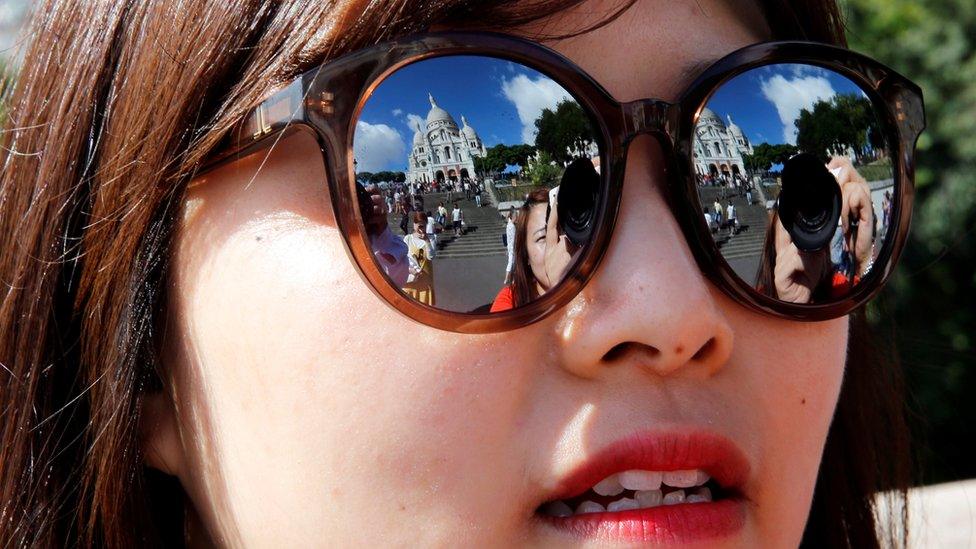
- Published18 January 2016
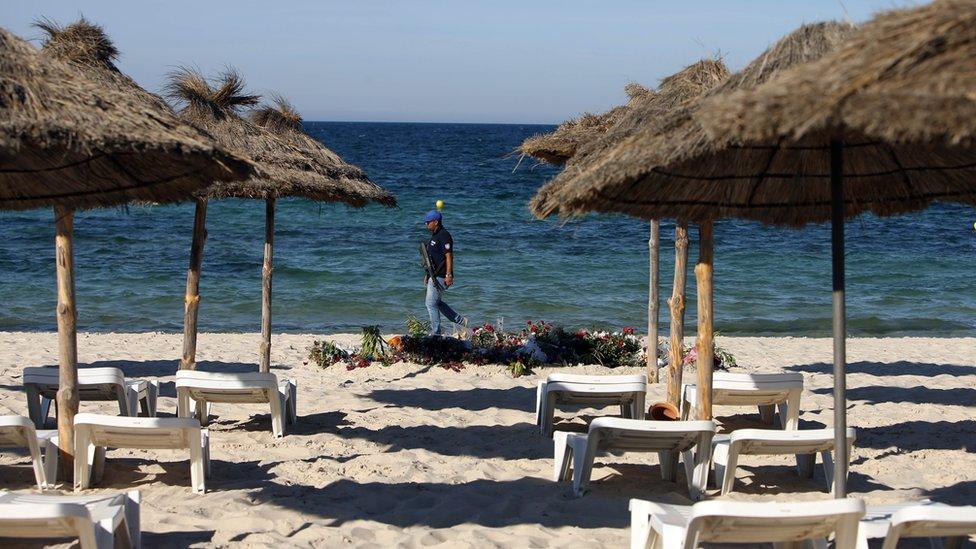
- Published29 June 2015
